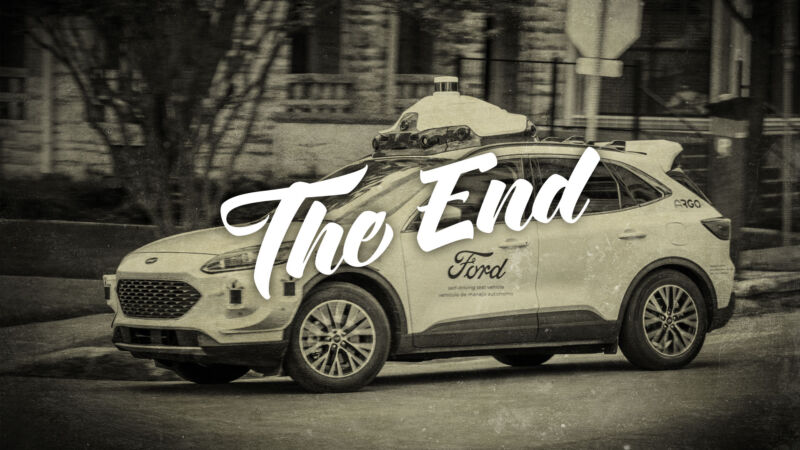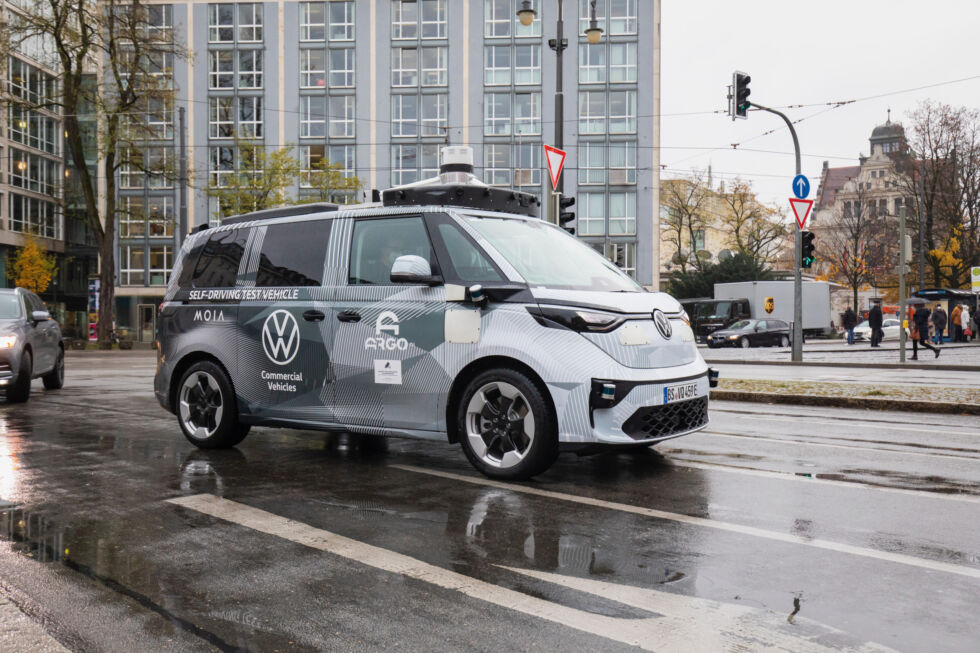Argo AI will cease operations as Ford and Volkswagen pull investments

The world of autonomous driving took a big blow on Wednesday with the sudden news that Argo AI will shut down. The high-profile startup had deep pockets courtesy of large investments from Ford and then Volkswagen Group, but both automakers are pulling back those resources to apply them to other problems like advanced driver assistance systems.
Argo was founded in 2016 and emerged into public view the following year with the news that Ford was investing a billion dollars in the startup over five years. At the time, the automaker was planning to launch a commercial autonomous ride-hailing business in 2021—a date that it obviously missed and an ambition it no longer holds.
In 2019, VW Group joined the party, adding another billion dollars in cash and $1.6 billion in the form of Audi’s autonomous driving spinoff. The company also agreed to buy half of Ford’s stake over three years.
What makes the news shocking is that Argo appeared to be one of the better-positioned autonomous vehicle startups, alongside Alphabet’s Waymo and General Motors-backed Cruise. In 2021, Lyft partnered with Argo after selling its own autonomous driving research group to Toyota and has deployed Argo-powered autonomous Lyfts in Miami (beginning in December 2021) and Austin (in late September 2022).

In September 2021, Walmart, another Argo partner, also announced plans to start using the startup’s autonomous driving technology for last-mile deliveries in Austin, Texas; Miami; and Washington, DC. Argo also began autonomous deliveries for a food insecurity organization in Pittsburgh in 2022.
But evidently, none of those business models made sense, and without extra backers, Ford and VW are pulling out.
In its Q3 report to investors, also published on Wednesday, Ford said that it had “made a strategic decision to shift its capital spending from the L4 advanced driver assistance systems being developed by Argo AI to internally developed L2+/L3 technology. Earlier, Argo AI had been unable to attract new investors. Accordingly, Ford recorded a $2.7 billion non-cash, pretax impairment on its investment in Argo AI, resulting in an $827 million net loss for Q3.”
Instead, the company will continue to develop partially automated systems like BlueCruise, which Ars Managing Editor Eric Bangeman recently spent quite a few hours testing.
“[T]hings have changed, and there’s a huge opportunity right now for Ford to give time—the most valuable commodity in modern life—back to millions of customers while they’re in their vehicles,” said Ford President and CEO Jim Farley.
“It’s mission-critical for Ford to develop great and differentiated L2+ and L3 applications that at the same time make transportation even safer. We’re optimistic about a future for L4 ADAS, but profitable, fully autonomous vehicles at scale are a long way off, and we won’t necessarily have to create that technology ourselves,” Farley said.

VW Group hasn’t abandoned its own robotaxi ambitions—Moia is still planning to roll out autonomous ID. Buzzes in Hamburg, Germany, in 2025. But the company is consolidating its autonomous driving development partnerships.
VW Group’s software division CARIAD will be responsible for developing partially automated driver assists (like BlueCruise) as well as fully autonomous driving technology with Bosch and, in time, Horizon Robotics in China. Meanwhile, VW Commercial Vehicles will continue trying to make the economics of driverless “mobility as a service” make sense.
“Especially in the development of future technologies, focus and speed count. Our goal is to offer our customers the most powerful functions at the earliest possible time and to set up our development as cost-effectively as possible,” said VW Group CEO Oliver Blume.
According to TechCrunch, Argo employees were told at an all-hands meeting on Wednesday that some of them will be offered jobs at either Ford or VW in addition to receiving a “generous” severance package. Argo staff not offered jobs at either of the automakers will receive an additional bonus, as well as health insurance.
https://arstechnica.com/?p=1893304